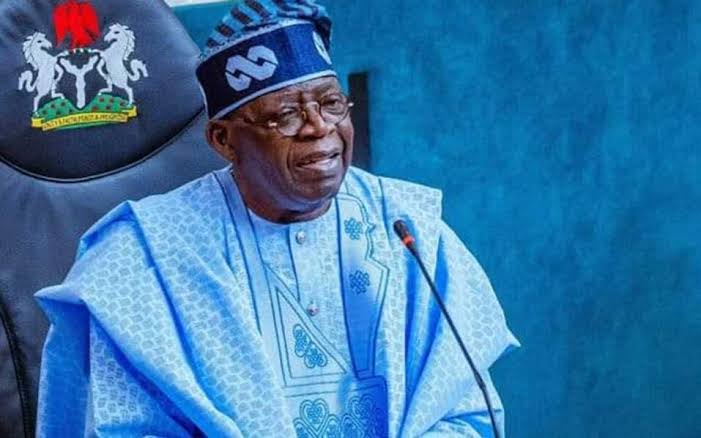The Nigerian presidency has strongly defended the pace of work on the Tax Reform Bills, dismissing allegations that the process is being rushed. Officials emphasised the extensive efforts and consultations involved, warning that delays could mirror the protracted journey of the Petroleum Industry Bill (PIB), which lingered in legislative limbo for over 20 years.
Presidential Aide Speaks on Tax Reform Bills
Temitope Ajayi, Senior Special Assistant to the President on Media and Publicity, addressed concerns in a statement shared on X (formerly Twitter). He highlighted that over 80 professionals from across Nigeria worked for 14 months to develop the reform bills. Ajayi warned that postponing their passage could have severe economic consequences.
Join our WhatsApp Channel“It is disingenuous to claim that the Tax Reform Bills, the product of 14 months of extensive work, are being rushed through the National Assembly,” Ajayi said. “The PIB took over 20 years to pass, and the nation paid the price through lost revenue, diminished investments, and reduced job creation in the oil and gas sector.”
Ajayi urged lawmakers to avoid a similar delay, stressing the critical importance of reforming Nigeria’s outdated tax system. “We cannot afford another 20 years of inaction. These reforms are essential for our country’s fiscal health and economic growth,” he added.
Zulum Criticizes Legislative Speed on Tax Reform Bills
Borno State Governor Babagana Zulum has expressed concerns about the pace of deliberations on the Tax Reform Bills. Speaking to BBC Hausa, Zulum questioned why the bills were receiving rapid attention when the PIB took nearly two decades to pass.
“Why the rush? The PIB took almost 20 years before it was finally passed. But this tax reform bill is being transmitted and receiving legislative attention within a week,” Zulum said. “It should be treated carefully to ensure future generations benefit from it.”
Zulum also raised concerns about the potential regional disparities the reforms might create. He claimed that Lagos State would be the primary beneficiary if the current structure remains unchanged, leaving other regions at a disadvantage.
READ ALSO: Tax Reform Bill Proposes VAT Revenue Shift To 55% For States, Tax Reliefs
Lessons from the Petroleum Industry Bill
The prolonged journey of the PIB serves as a cautionary tale, according to Ajayi. Political disagreements, regional divisions, and a lack of urgency delayed the PIB’s passage, costing Nigeria billions in lost revenue and untapped investment opportunities.
“The delays in modernising our oil laws weakened Nigeria’s fiscal position, limited job creation, and discouraged global investors,” Ajayi explained. He stressed that the Tax Reform Bills must not suffer a similar fate.
The Process Behind the Tax Reform Bills
Unlike the PIB, the Tax Reform Bills were crafted through a rigorous process that included extensive consultations and expert input. Ajayi shared a detailed timeline showing how the bills were developed over 14 months, incorporating contributions from experts across Nigeria’s diverse regions and sectors.
He rejected claims that the bills are being pushed for ulterior motives, insisting they are critical to addressing Nigeria’s economic challenges. “With dwindling oil revenues and a growing debt burden, Nigeria must diversify its economy and improve its tax system to fund critical public services,” Ajayi said.
Calls for Transparency and Unity
Ajayi urged lawmakers to prioritise national interests over political divisions, emphasising the need for transparency and accountability. “The most important thing is to be upright in your decisions, transparent, and accountable,” he said.
He warned that further delays in passing the Tax Reform Bills would jeopardise Nigeria’s economic future, especially given the urgent need to boost revenues and fund public services.
The Tax Reform Bills represent a crucial step toward modernising Nigeria’s tax system and diversifying its economy. While some stakeholders, like Governor Zulum, advocate for caution, others, including the presidency, emphasise the risks of delay. As the bills move through the National Assembly, the outcome could shape Nigeria’s fiscal stability and economic trajectory for decades to come.
Emmanuel Ochayi is a journalist. He is a graduate of the University of Lagos, School of first choice and the nations pride. Emmanuel is keen on exploring writing angles in different areas, including Business, climate change, politics, Education, and others.
- Emmanuel Ochayihttps://www.primebusiness.africa/author/ochayi/
- Emmanuel Ochayihttps://www.primebusiness.africa/author/ochayi/
- Emmanuel Ochayihttps://www.primebusiness.africa/author/ochayi/
- Emmanuel Ochayihttps://www.primebusiness.africa/author/ochayi/


















Follow Us